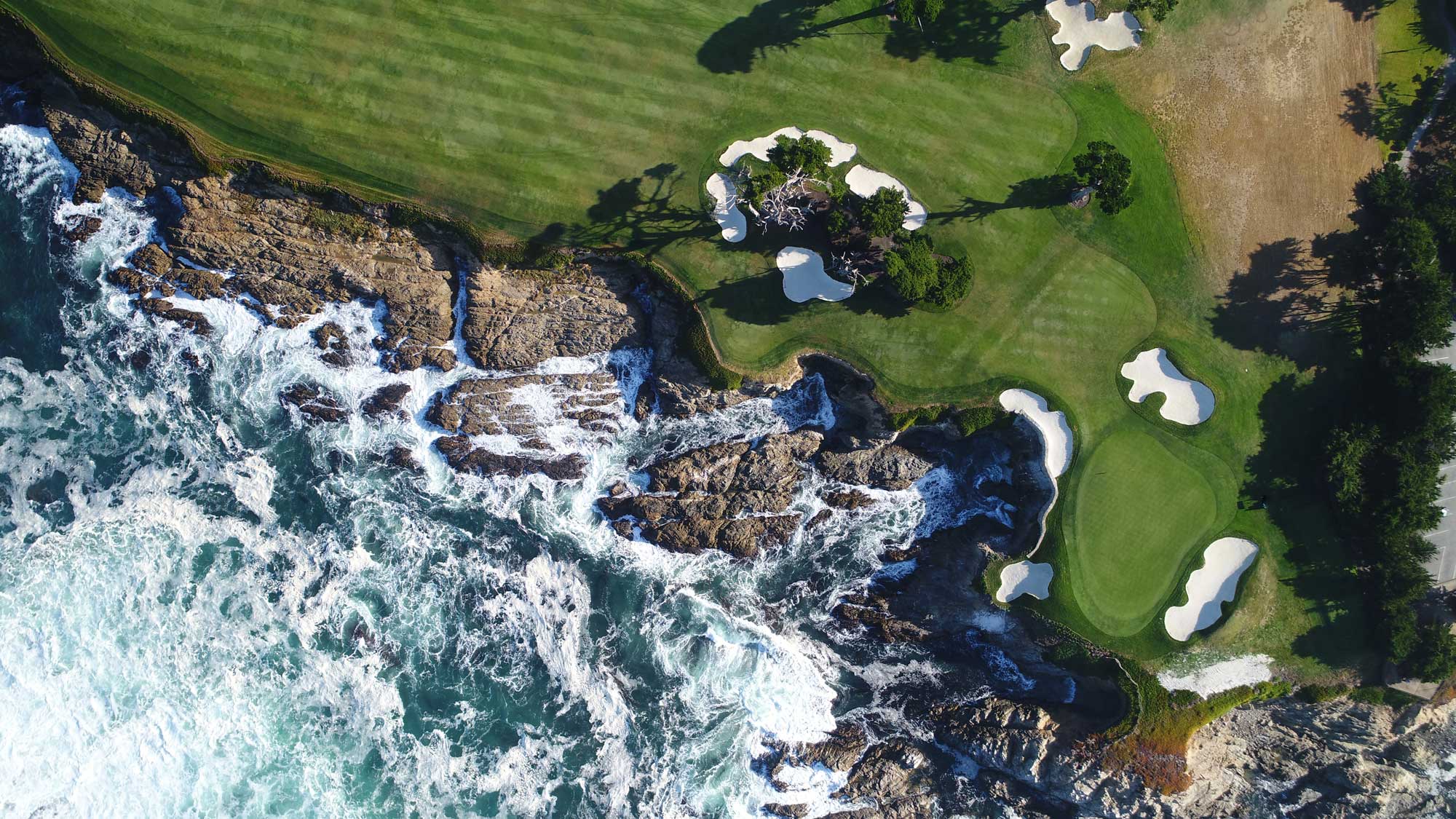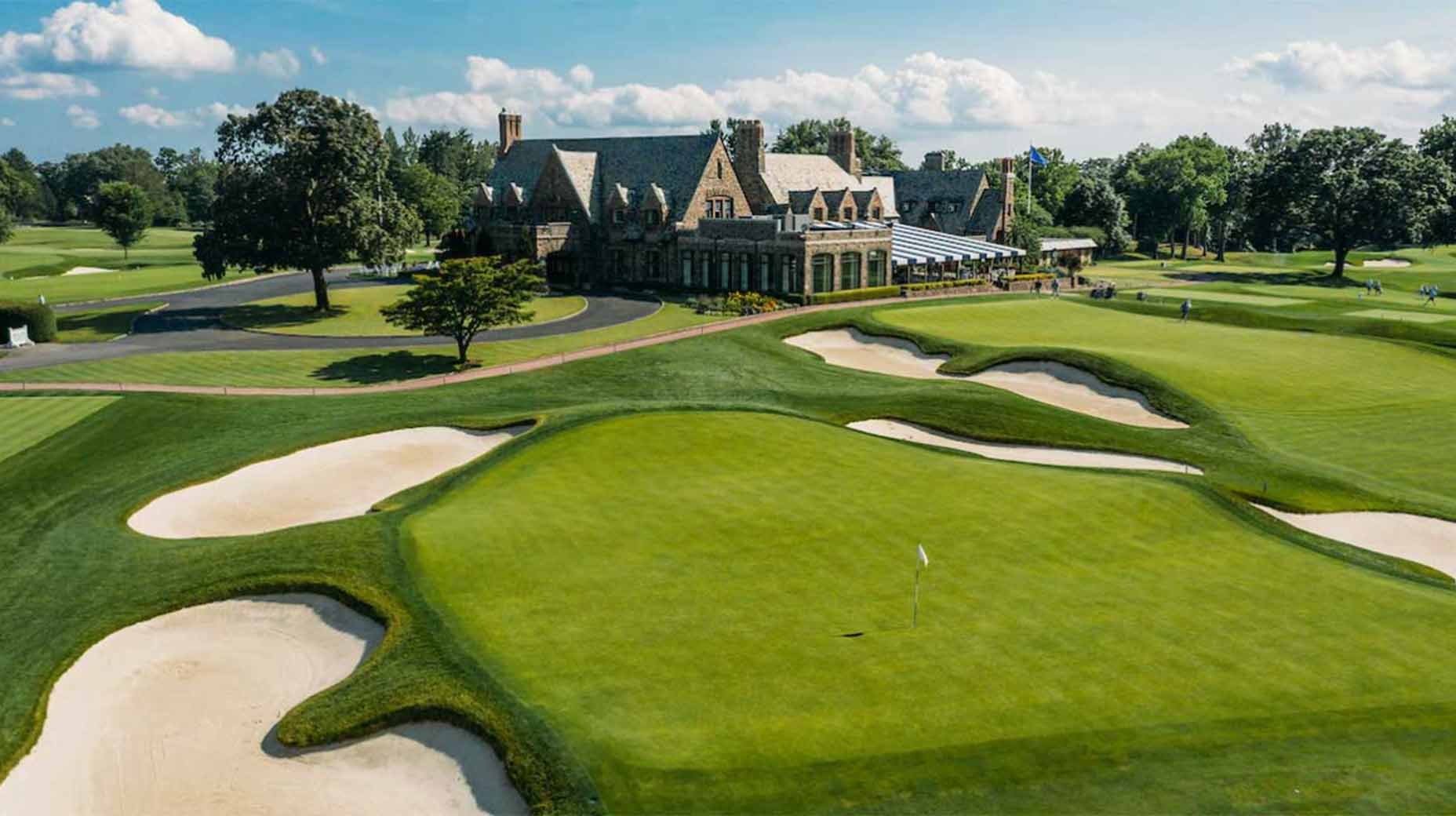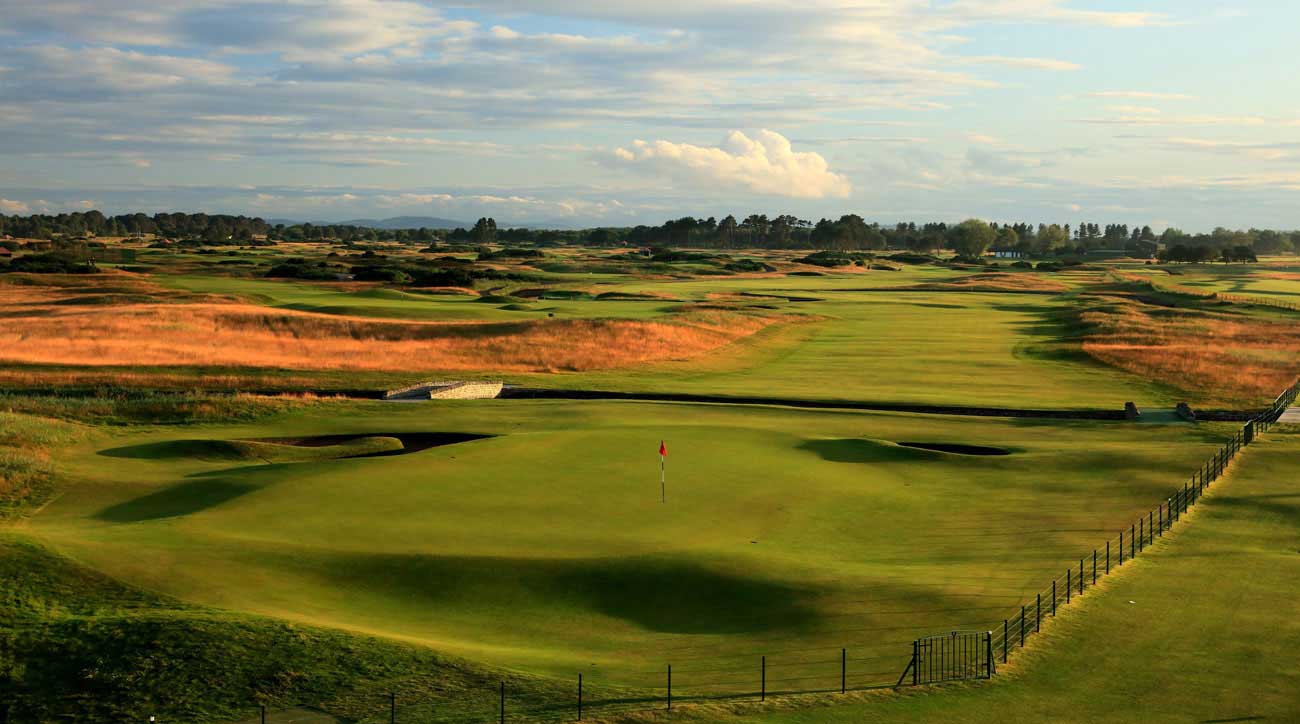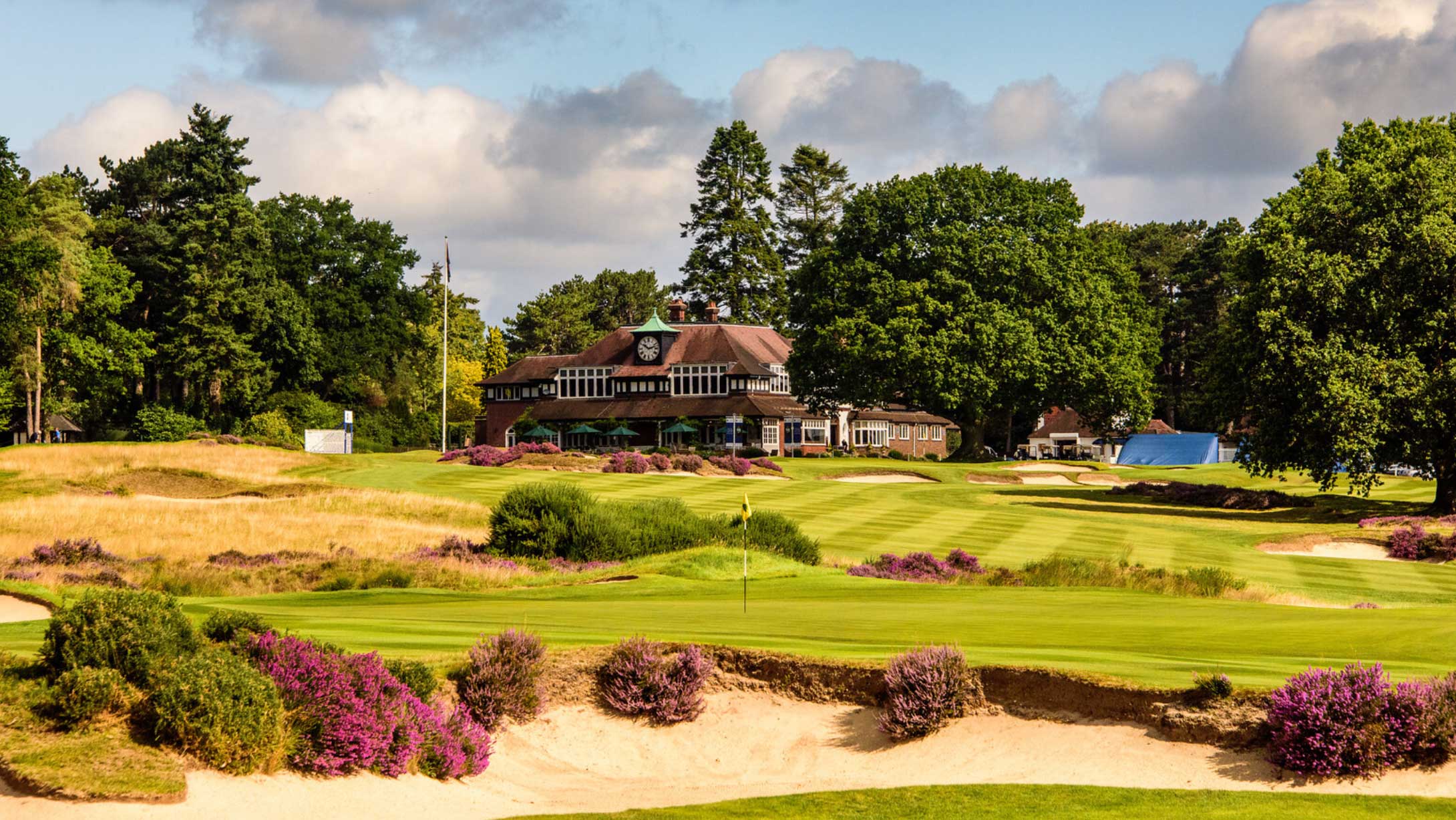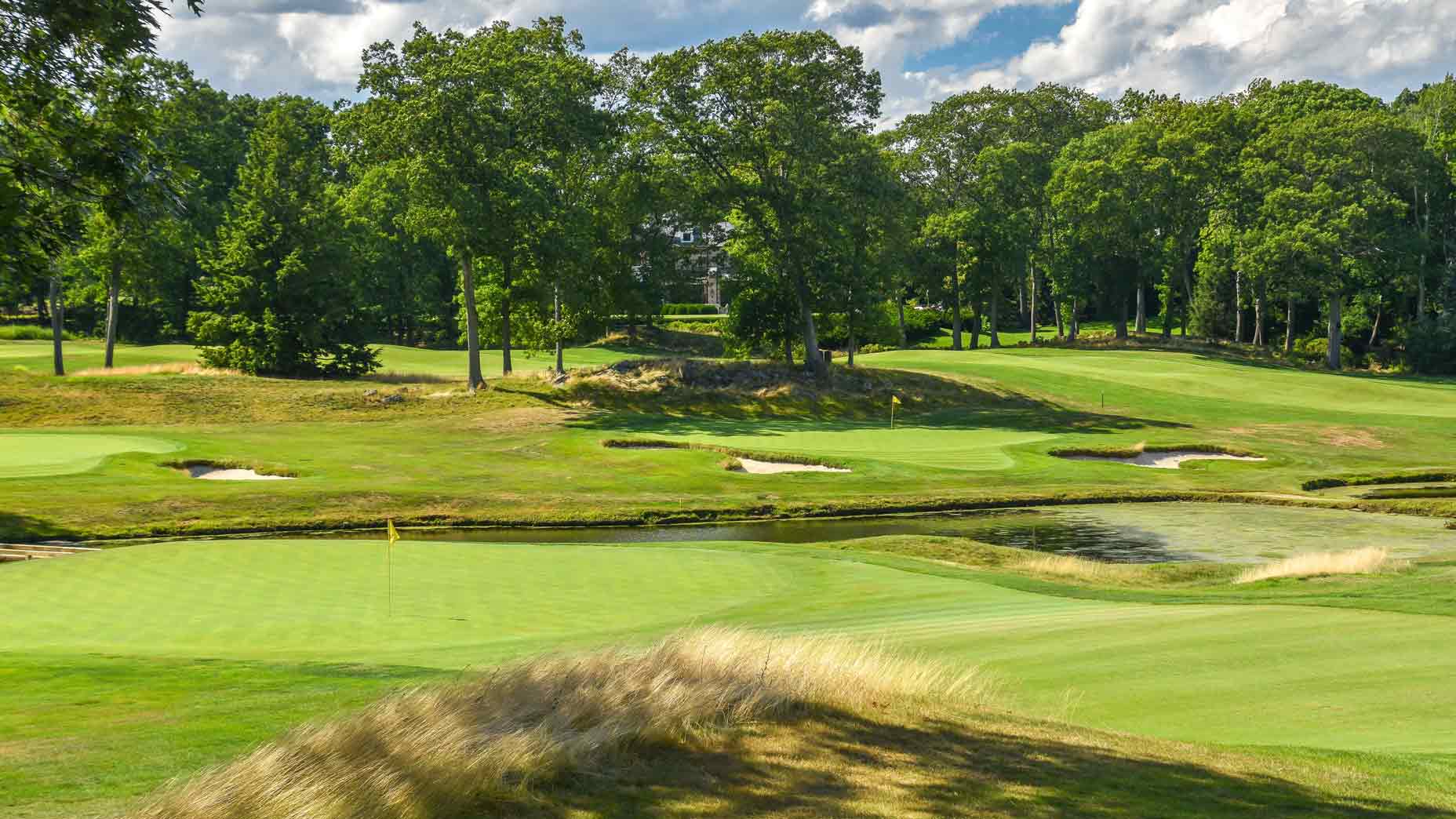For every great course that made GOLF’s 2020-21 ranking of the Top 100 Courses in the U.S., dozens of more must-plays were left on the outside looking in — including at least a handful in your home state. Some of these designs just missed out on a Top 100 nomination, others finished deeper down the ranking, but all are worthy of your time. To shed light on the best courses in every state, we broke out the full results of our Top 100 Courses polling into state-by-state lists. Here’s a closer look at California.
California golf by the numbers:
Number of courses and U.S. rank: 972 (2)*
Number of golfers per capita rank: 31*
Average public-course greens fees: $$$ out of $$$*
Average daily temp and rank: 59.4 (12)
Annual precipitation and rank: 22.2 in. (40)
*Source: National Golf Foundation
Best California golf courses (2020/2021)
1. Cypress Point (Pebble Beach) [1, 2]
As Alister MacKenzie must have felt about his 1928 design, it’s almost inconceivable that land this stunning was made available for golf. For the lucky few who get to play here, they enjoy one of the best walks in the sport as MacKenzie effortlessly transports the player around the diverse property. The iconic par-3 16th, which extends into the churning Pacific, is perhaps the most dramatic and photographed hole in the game, but there are endless other highlights — from heaving dunes to jagged coastline — that golfers won’t soon forget. How did MacKenzie get the best from the land? In part, by breaking the “rules” and having back-to-back par-5s on the front and back-to-back par-3s on the back. The drivable 1/2-par 9th is another design standout with its angled green toward play.
2. Pebble Beach (Pebble Beach) [1, 2, 3, P]
The first great American public oceanside course, Pebble benefits from an ingenious routing that brings the player right to the ocean’s edge, then away into the woods, then back again. Even today, no more thrilling, spectacular stretch exists than holes 4 through 10. Does anything in golf compare with that final stroll up the par-5 18th as it curves left around Carmel Bay? Hard for a course this well known to exceed first time expectations — but it does, which is a true feat.
Book a tee time at Pebble Beach.
3. Los Angeles – North (Los Angeles) [1, 2]
Gil Hanse’s team restored George Thomas’s classic to perfection in 2010. Bunkers were reshaped and relocated, fairways were widened and re-shaped and a natural barranca was brought back into play as a strategic hazard. Arguably America’s premier urban design, LACC North hosted the 2017 Walker Cup and design afficionados can’t wait for the highly anticipated 2023 U.S. Open. To quote Hanse, “The course enjoys a perfect sense of place and balance.”
4. Riviera (Pacific Palisades) [1, 2]
The value of a good architect is highlighted here in technicolor. Built in a narrow canyon, there was no reason to hold high hopes for this course. Yet what emerged, courtesy of George Thomas and Billy Bell, is one of the game’s strategic design marvels. Together, they took bunker configuration and angled greens to new heights in the 1920s. As proof of their magical skills, look no further than Riv’s 311-yard, par-4 10th. Thanks to the inspired positioning of the bunkers and the angled green, options abound on how to card a big number on this tiny hole. Thomas’s famous quote — “Strategy is the soul of the game” — manifests itself at Riv.
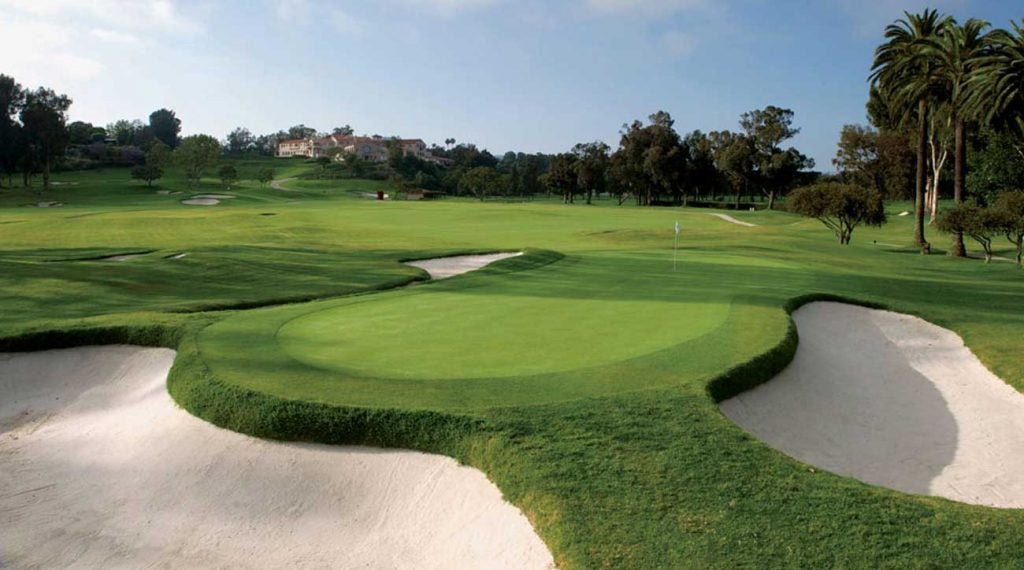
5. San Francisco (San Francisco) [1, 2]
A.W. Tillinghast may have crafted his most gorgeous collection of bunkers at this low-key Bay Area hideaway that avoids publicity as steadfastly as its neighbor the Olympic Club embraces it. Known as the Duel Hole, the drop-shot par-3 7th may be the course’s most famous hole but its par-4s, like the 2nd, 10th and 12th, deserve equal acclaim.
6. California Golf Club of San Francisco (South San Francisco) [1, 2]
For most of its 80-year history, the Cal Club, as locals call it, served up a tight though well-regarded Bay Area course, enhanced by its association with Ken Venturi. Following a 2008 Kyle Phillips re-do that was part restoration and part re-design, many feel this private course is now the equal to any course in California north of Cypress Point. Situated on the side of a hill, the course is guaranteed to catch any wind that is about. Add in its fescue fairways and the site’s broad slopes and you have a course whose asks change daily. Even in calm conditions, the mix of short grass, sprawling bunkers and cypress trees provide constant photo opportunities that captivate. When you discover the design plays as good as it looks, you have something special.
7. Olympic – Lake (Daly City) [1]
Always a delight to find a course that rewards the lost art of shaping shots. The 4th hole, for instance, features a reverse-camber fairway: the hole swings right to left but the fairway tilts left to right, mandating a draw from the tee. The next hole, a dogleg right, calls for a fade. The ability to shape tee balls played to Lee Janzen’s strength when he won the 1998 U.S. Open here. Recent clearing has helped to highlight the stunning nature of the cypress trees that line this hillside overlooking Lake Merced.
8. Valley Club of Montecito (Montecito) [1]
Designed by Alister MacKenzie with Robert Hunter overlooking construction, The Valley Club oozes charm. The holes don’t bully the player and length isn’t the issue but approaching these greens from the optimal side of the fairway is paramount, given the firmness of the playing surfaces that club routinely achieves. Look no further for proof than the first two greens and how they are angled to reward play from the riskier, left side of the fairway. The only thing missing is yardage markers, but only because the club doesn’t believe in them.

Valley Club GolfLogix Greens Books
9. Pasatiempo (Santa Cruz) [1, P]
The 59th-ranked course on our Top 100 U.S. list was, according to Alister MacKenzie, the finest course he ever built. Unlike Cypress Point, just an hour south, Pasatiempo sits slightly inland, but its high points offer views of the Pacific and the entire routing, with its giant paw-print bunkers and large, undulating greens, make plain the influence that this course had on MacKenzie’s later work at Augusta National. Charms and challenges abound, from the long, uphill par-3 3rd to the par-4 16th, a humpbacked dogleg with a second shot that plays over a chasm to a wild and winning three-tiered green. Some nitpickers grouse that the course is pinched by homes. But one of those houses belonged to MacKenzie, who chose to reside beside the par-5 6th.
Book a tee time at Pasatiempo.
10. Monterey Peninsula – Shore (Pebble Beach) [1]
Once a ho-hum layout that languished in the shadow of its famous 17-Mile Drive neighbors, the Shore Course started drawing notice in 2004 after the iconoclastic architect Mike Strantz built 12 new holes and overhauled six others. Strantz said his goal was to make players “dance among the cypress.” But his routing, which opens and ends amid the pines, also takes advantage of a vast expanse of coastline, with fairways fringed by wispy native grasses, and dramatic rock outcrops framing several greens and tees. In 2010, five years after Strantz’s death from cancer, his work gained even greater recognition when the Shore Course joined the rota of the AT&T Championship.
11. Bel-Air (Los Angeles) [1]
A George C. Thomas classic that winds through the canyons overlooking Los Angeles. Great architects had tinkered with Bel-Air over the years, but Tom Doak’s recent restoration took out the modern gimmicks and more than 30 bunkers, bringing Bel-Air back much closer to its original design. What hasn’t changed: the clubby atmosphere on the patio, that stunning walk over golf’s most famous suspension bridge and a back nine showcasing what Ken Venturi called some of the best long par-3s in the world.
12. Monterey Peninsula – Dunes (Pebble Beach) [1]
Everything old is new again. Working with the original Raynor routing, wunderkinds Tim Jackson and David Kahn brought to fore the rugged features of a forest-meets-sea landscape on a reborn course that boasts majestic dunes, expansive sandy wastes and greens of wildly varied size and contour. Formerly straight fairways now sashay gracefully with the coastal terrain, and the par-3s, long a strength, have grown remarkably great. They include the hard-along-the-water 14th, which plays over the waves and is such a striking sight, tourists often stop to spectate from an overlook on 17-Mile Drive.
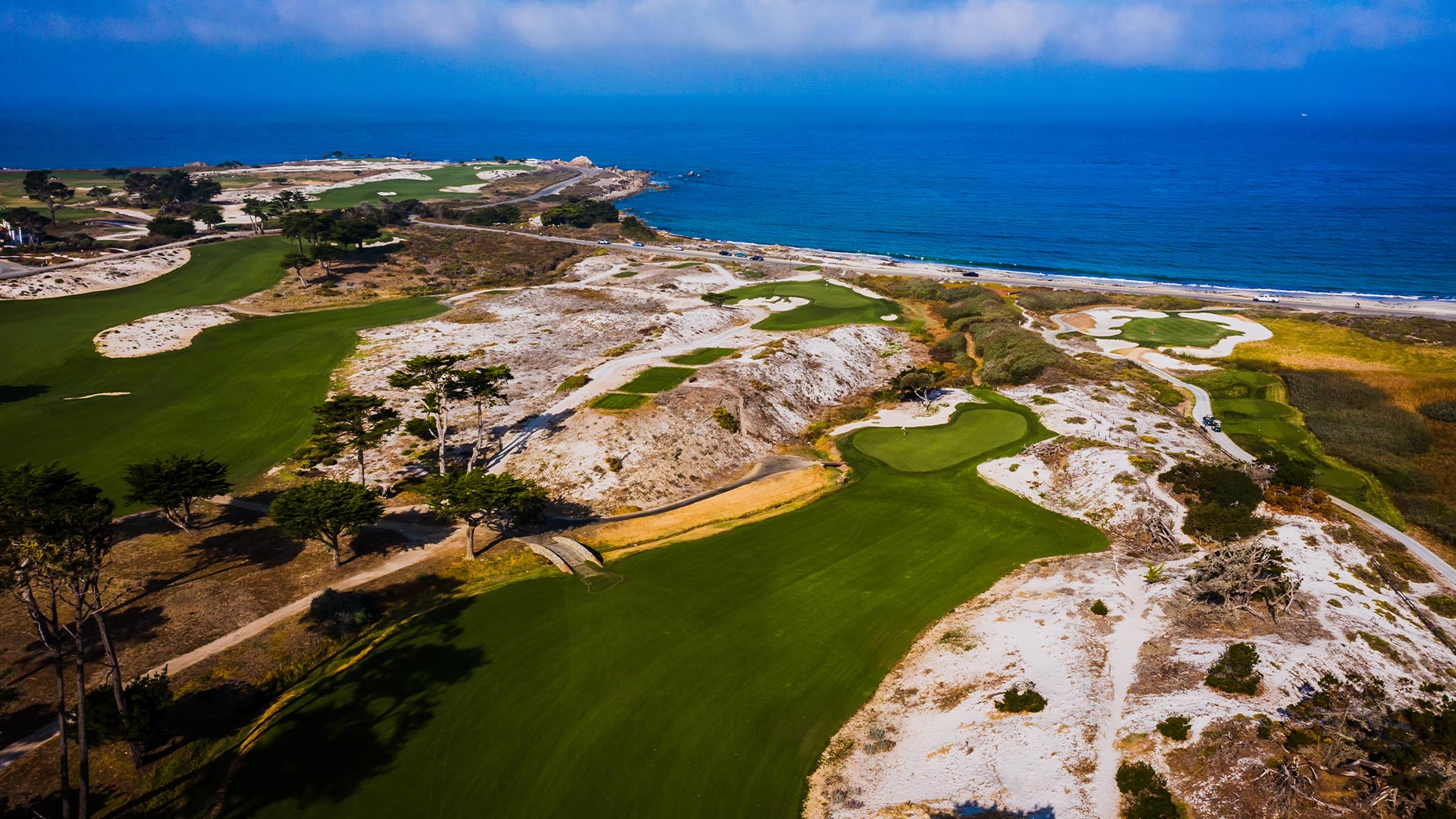
13. Spyglass Hill (Pebble Beach) [3, P]
Book a tee time at Spyglass Hill.
14. Meadow Club (Fairfax)
15. Stone Eagle (Palm Desert)
16. Rustic Canyon (Moorpark) [P]
Book a tee time at Rustic Canyon.
17. Wilshire (Los Angeles)
18. Madison Club (La Quinta)
19. Torrey Pines – South (La Jolla) [P]
Book a tee time at Torrey Pines.
20. Martis Camp Club (Truckee)
21. The Preserve (Carmel-By-The-Sea)
22. San Diego CC (Chula Vista)
23. Mayacama (Santa Rosa)
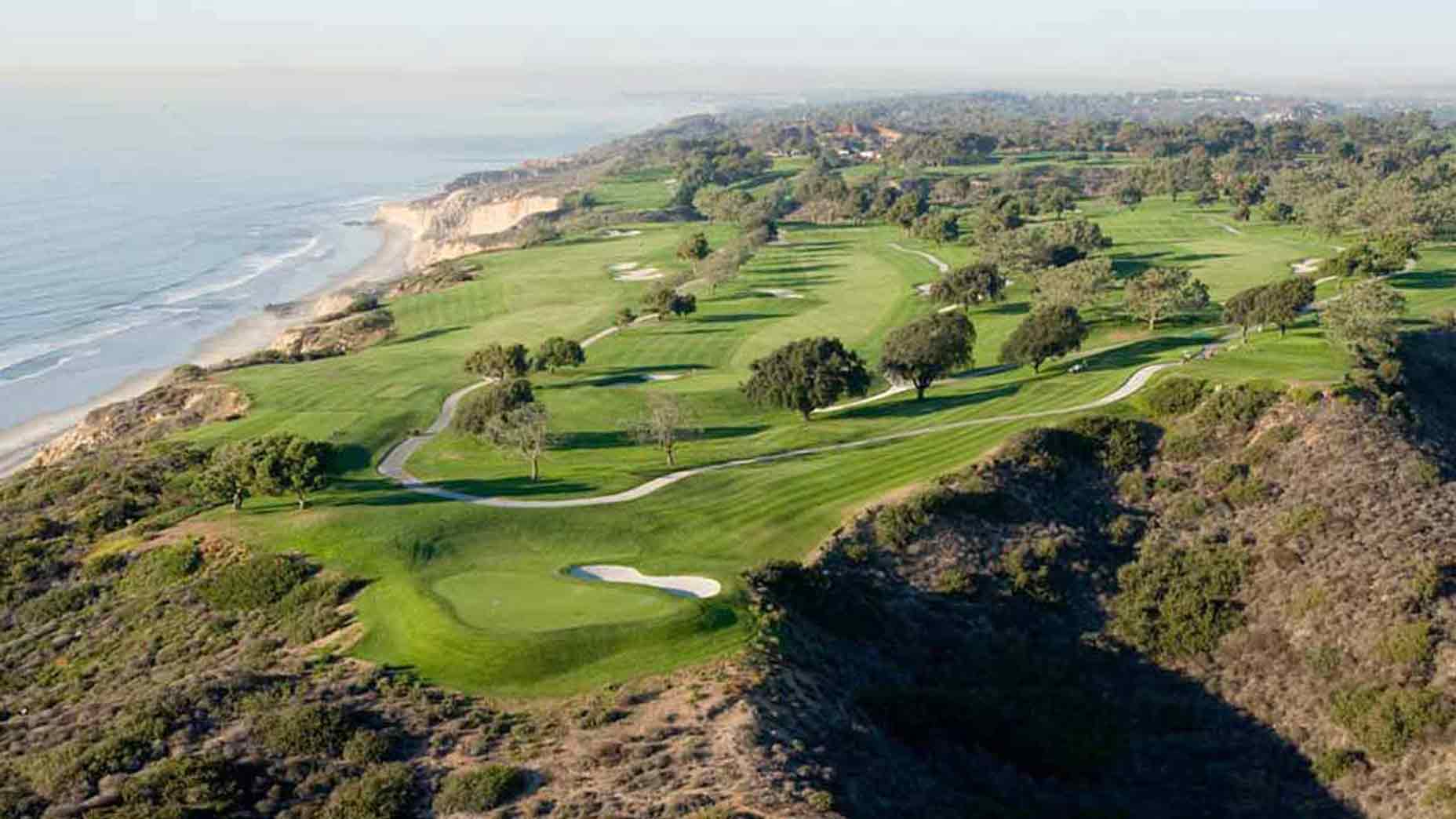
24. PGA West – TPC Stadium (La Quinta) [P]
25. Barona Creek (Lakeside) [P]
Book a tee time at Barona Creek.
26. Lakeside (Burbank)
27. Olympic – Ocean (San Francisco)
28. La Jolla CC (La Jolla)
29. Hacienda (La Habra Heights)
30. Oak Quarry (Riverside) [P]
Book a tee time at Oak Quarry.
SYMBOL GUIDE
1 = GOLF Top 100 Course in the U.S.
2 = GOLF Top 100 Course in the World
3 = GOLF Top 100 Resort
P = Resort/public golf course
Ed. note: Some courses were omitted from our rankings because they did not receive enough votes.
Course spotlight: Lakeside (Burbank), ranked 26th in California. In a golf market that is dominated by some big-pedigree clubs, I find this course to be the most enjoyable to play on a daily basis and has every bit the bite required to test the best players. A mostly flattish and walkable terrain that employs some terrific ground contouring below the holes, not at its sides like so many attempts at architecture made today. Fantastic recent work and tree removal by Todd Eckenrode takes this course to contender status with the local elite clubs. — GOLF Top 100 Course Rater
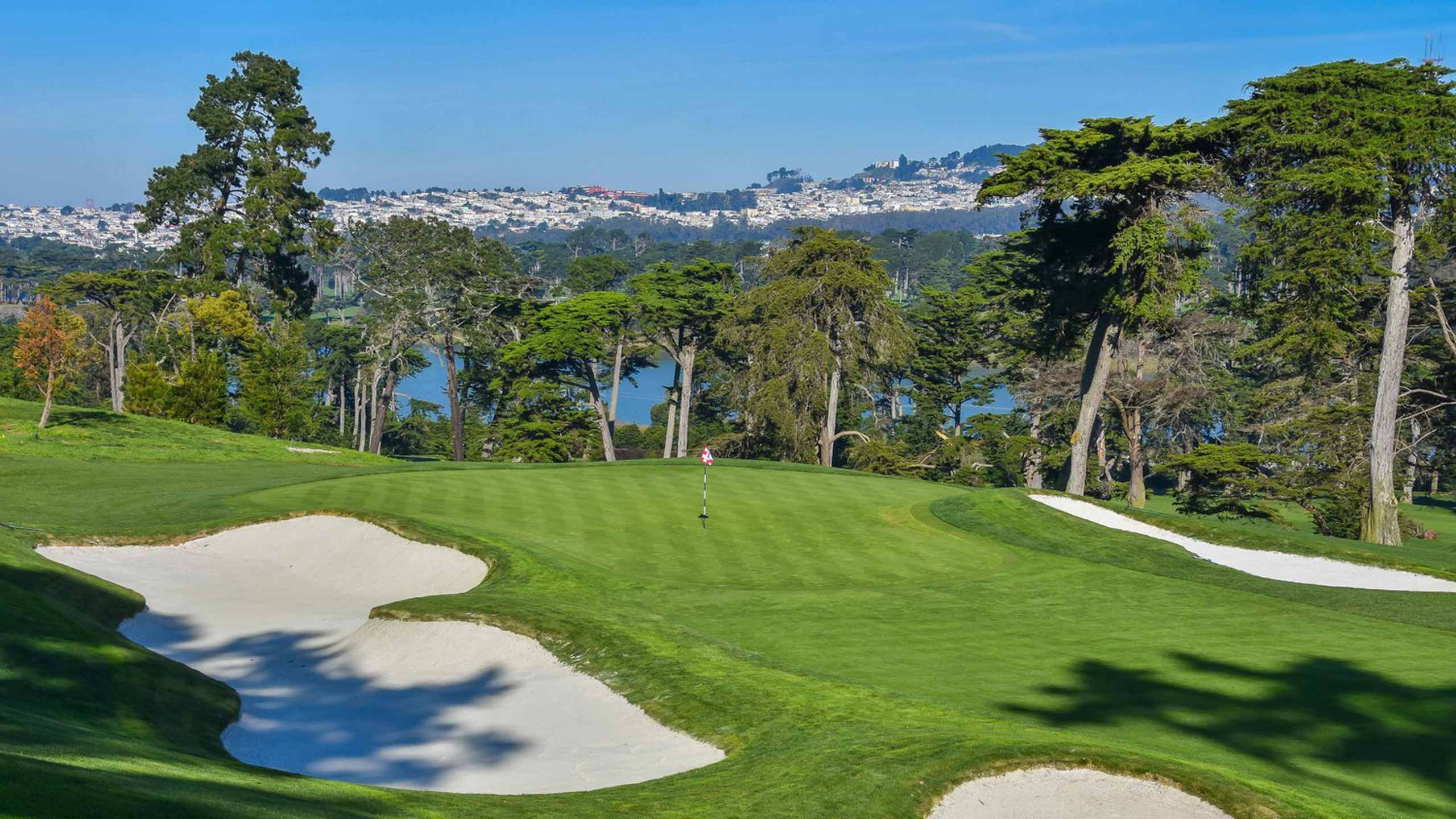
How we rank America’s best golf courses
For the newly released 2020-21 U.S. list, each panelist was provided a list of 489 courses. Beside that list of courses were 11 “buckets,” or groupings. If our panelists considered a course to be among the top three in the country, they ticked that box. If they believed the course to be among Nos. 4-10 in the U.S., they checked that box, followed by 11-25, 26-50, and so on.
Panelists were also free to write in courses that they felt should have been included on the ballot (we had fewer than a handful of such additions in the U.S. vote).
Points were assigned to each bucket; to arrive at an average score for each course, we divide its aggregate score by the number of votes. From those point tallies, the courses are then ranked accordingly. It is an intentionally simple and straightforward process. Why? Because it invariably produces results that are widely lauded. Like the game itself, there’s no need to unnecessarily overcomplicate things.
For much more on how we rate courses, click or tap here.
Meet our course raters
We empower and hold accountable a group of 97 well-traveled — and well-connected — golfers/aficionados, each capable of expressing their own sense of design excellence at the highest level. The group is seasoned and experienced — we look for raters who know what’s out there, what’s changing and what’s coming down the pike. And from judging posts across four continents, our panelists are positioned to place courses from different regions around the globe into proper context, one of the main reasons GOLF’s Top 100 Courses rankings are the most esteemed in the game.
Other ranking outlets employ thousands of raters. Our less-is-more approach creates a more meaningful and thoughtful list. Think about it: When you plan a golf trip, do you call every golfer you know for their take? No. You contact a handful of people whose opinions you value most.
Meet our full crew of panelists here.
